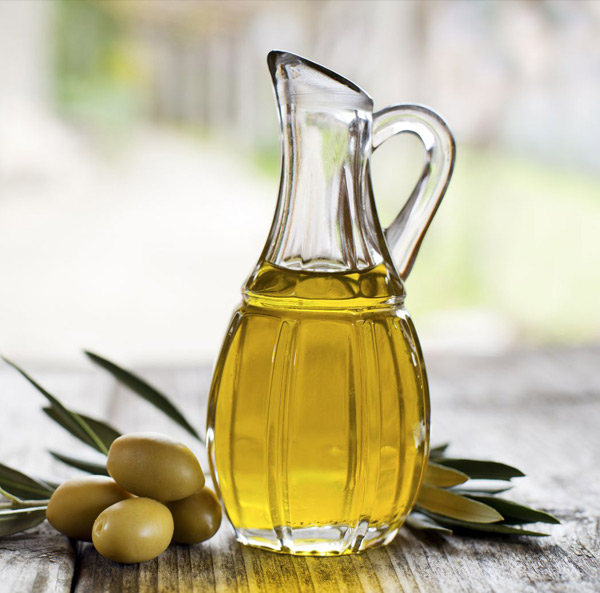
Olive Oil and Health
What does extra-virgin olive oil mean?
The extra virgin olive oil is obtained from the first pressing of olives through traditional mechanical processes, without any further chemical or physical manipulation.
Fresh, top quality olives are harvested, graded, centrifugally cleaned, softened, pressed and filtered, a totally natural production process without the use of chemicals.
The extra virgin olive oil has a maximum acidity of 0.8% and a distinctive, fruity
scent reminiscent of that which is experienced when sqeezing a freshly picked
ripe olive between the fingers.
What does "cold-pressed oil" mean?
‘Cold pressed’ or ‘cold extracted’ olive oil, is a traditional system for extracting oil by pressure; in this way, the homogenized olive paste is produced by a kneading machine which seperates solid olive pulp (sansa) and the liquid part consisting of oil and water; the latter passes through a centrifuge, which separates oil from water.
The Community regulation (EC Reg. No. 1019/2002 of 13/06/2002) requires and guarantees that for this method, temperatures below 27° C are used.
What does the D.O.P. brand guarantee??
The D.O.P. mark (Denominazione di Origine Protetta) guarantees and protects the typicality and producer origins of extra virgin olive oil. In fact, the D.O.P. emblem ensures that all the olives used for extra virgin olive oil production come from trees belonging to the produce area and that all the phases of the production process take place in the place of origin with respect to the produce area.
What does organic extra-virgin olive oil mean?
Organic extra virgin olive oil is an oil obtained from olives grown in one location using natural methods and without using chemicals, pesticides and herbicides along the entire production line (production, processing and packaging). The main objectives of organic farming are:
- The production of healthy and high quality food;
- Safeguarding the environment, nature and agricultural landscape;
- Maintaining and increasing the lasting fertility of the land;
- Energy saving.
How to preserve extra virgin olive oil correctly?
The extra virgin olive oil must be stored in a cool and dry place at a temperature of 16° to 18° degrees, away from light and away from sources of heat. Prolonged contact with air, some metals and fatty acids should also be avoided. In addition, it is good to use glass bottles for storage because they allow a better stability of the organoleptic characteristics of extra virgin olive oil.
Does extra-virgin oil help to maintain good health?
The use of extra virgin olive oil reduces the risk of death due to ischemic heart
disease as it contributes to the formation of the so-called "good" cholesterol that
cleans the body’s arteries from any artereosclerotic plaques. Many scientific
studies support this.
The regular consumption of extra virgin olive oil also facilitates liver activity, promotes normal digestion, reduces the risk of formation of gallstones and gastric and duodenal ulcers.


